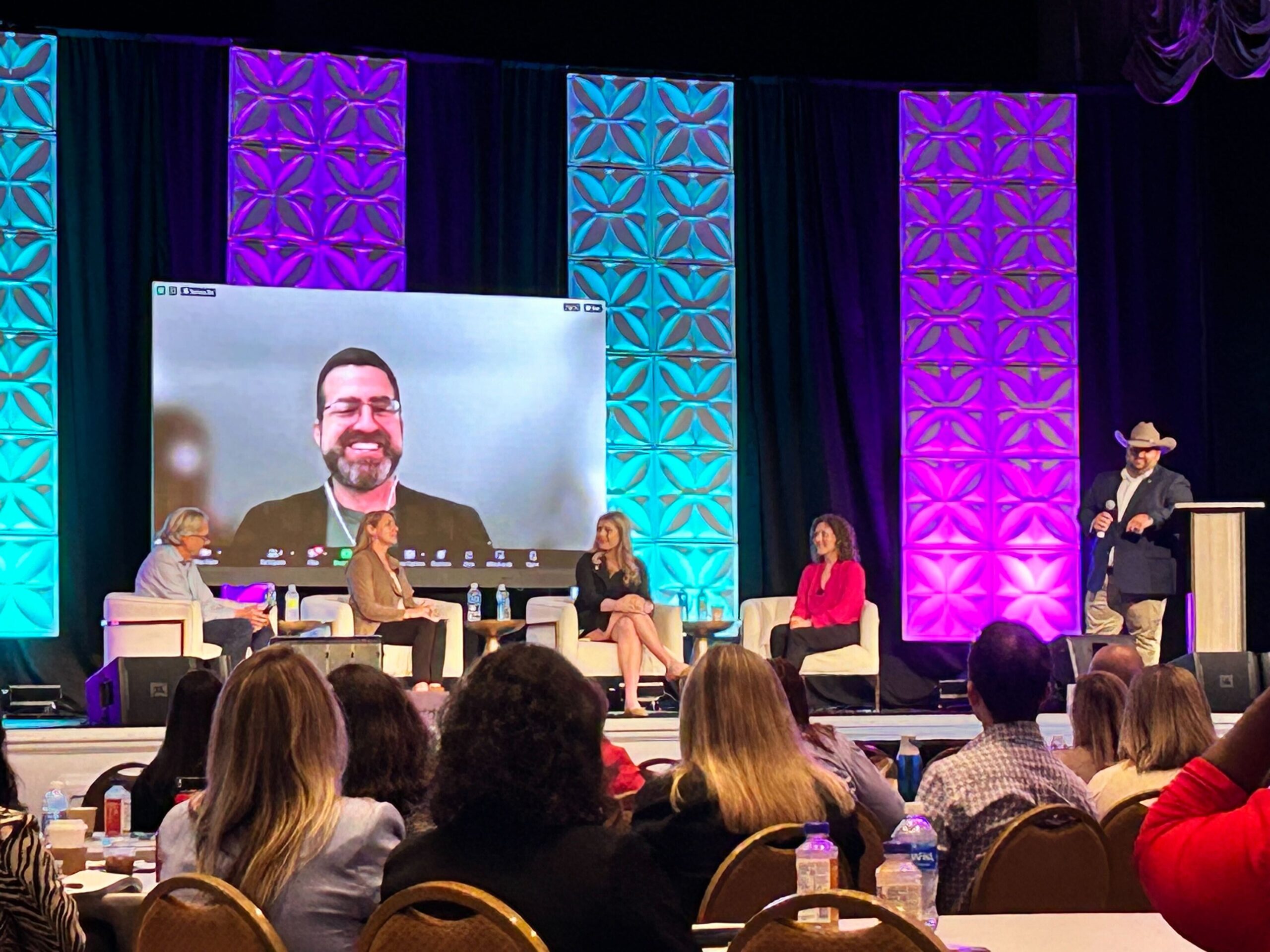By Lindsey Simcik & Kristin Wall, The Mars Agency
By 2027, 70% of all sales will be digitally influenced, according to Forrester. But as the shopper’s path to purchase becomes increasingly intermingled with their digital lifestyles, we could argue that the impact on sales is even greater.

It’s truly an omnichannel world, as we learned yet again at the Salsify Digital Shelf Summit, where over 800 practitioners gathered in Nashville, Tennessee, from April 9-10 for an action-packed two days of industry learning and networking with the powers in the space. Speakers at the event shared valuable insights on the following five themes.
Artificial Intelligence:
Salsify’s own principles set the tone for the discussions about AI: Value First, Humans in the Loop, Go at Your Own Pace. The way various organizations are adopting and testing AI is coming in all shapes and sizes. AI’s impact on the digital shelf will be big. The technology also is allowing organizations to accomplish more tasks; enabling efficiency across several channels; and facilitating real-time product testing based on shopper need — but it’s going to require stronger data quality to do this work properly.
Despite the challenges involved, speakers talking about AI exhibited an optimistic tone. As the technology continues evolving, it will make the tasks of practitioners easier — helping to bring digital shelf quality to the entire brand portfolio rather than just the top-selling items now getting most of the focus.
Product Quality:
Engaging content drives sales throughout the digital shelf. Presenters shared how they’ve used a variety of insights to drive higher shopper engagement through the product detail page. It was fascinating to learn about the various challenges brands face in other industries and the business-to-business space. As consumers become more accustomed to having seamless, personalized B2C shopping experiences, they’re expecting the same in the B2B space as well. It’s critical for digital shelf experts to understand how and where data can be leveraged to create more impactful content experiences for shoppers while also implementing a scalable process for keeping that content relevant and engaging — because, as we all know, the digital shelf is never “one and done” but requires ongoing maintenance.

Meanwhile, retail media continues to surge within omnichannel by giving brands new media opportunities for connecting with shoppers. Digital commerce analyst Russ Dieringer, founder of Stratably, explained that brands are now allocating 15% to 20% of their total media spend to support retail media. As brands increase their funding, it’s critical for them to also invest in PDP content or they’ll risk losing ROI — because that’s where shoppers convert. No one said it any simpler than Albertsons Product Manager Neal Myerson: “More quality content drives sales.”
Data Governance:
Bad data is bad for business. We know shoppers will switch brands due to incomplete product data. But that’s not all: poor data can flow into other avenues of the business, such as shopper return rates, supply chain costs, and missed repeat sales. Product data is vital to a successful omnichannel business and requires working with all key stakeholders to ensure that the correct data is being passed to retailers. Data is also critical to getting stakeholders on board with the mission of investing, optimizing, and dedicating resources to support the digital shelf.
Several presenters talked about how the right data can make speed to market a tangible result whose importance will be easily understood by executive leaders. Sharing data across product information/digital asset management platforms and stakeholders (brand, sales, legal, IT) can be difficult, but doing so will have a positive impact across the organization once implemented, according to digital transformation leaders.
Measurement:
Metrics are a part of the game when you’re working in the digital space. While digital shelf activities are undoubtedly important, practitioners continue to face challenges in reporting and tracking the metrics that matter. Using tools like Salsify’s to transform data into syndicated content for retailers is a critical component in managing the digital shelf, but getting buy-in from cross-functional departments outside of ecommerce to unlock the true value of these workstreams remains challenging.

Presenters shared how data governance and project management workflows can decrease time to market and time spent managing product data while improving accuracy and governance — and help to improve online sales as well. Other quantitative measures that demonstrate digital shelf impact include retailer readiness, content health, and share of search.
Digital Transformation:
Digital transformation “is less about the what and more about the how,” shared Jennifer Angelus, Director of Digital Shelf & Capabilities at Danone. Many Summit sessions focused on technology and data initiatives, which are important for growing and maintaining the health of any CPG business. But since the ultimate goal is to drive sales and shopper connections, practitioners must continuously re-evaluate and realign their digital shelf strategies based on how, when, and where shoppers are throughout the path to purchase.
Doing this requires marketers stay ahead of the curve by:
- integrating AI and other technology to create more efficient workflows,
- driving change while preventing burnout,
- enabling a continuous feedback loop across departments (consumer insights, brand, marketing, sales, etc.) to elevate the shopper experience, and
- protecting brand equity against unauthorized third-party sellers and counterfeit products.
All of that needs to be accomplished while remaining efficient and operating at scale — because the PDP is your online sales force.
From digital shelf novices to expert-level practitioners, the Salsify Digital Shelf Summit provided a forum to learn from the industry leaders who are pushing boundaries today while also gaining insights into how this space will evolve tomorrow through expanded partnerships, capabilities, and technologies. The countdown has already begun for the next Summit, scheduled for April 2025 in New Orleans.
About the Authors

Lindsey Simcik is Senior Digital Marketing Content Manager at The Mars Agency, where she helps clients optimize and syndicate all aspects of the digital shelf. She has spent the last nine years helping brands evaluate and improve their ecommerce presence on the largest shopping websites.

Kristin Wall is Vice President of Ecommerce at The Mars Agency, where she leads the digital shelf center of excellence and helps brands navigate the art and science of creating connected shopping experiences. A marketing leader with 15-plus years of experience in digital strategy, she builds innovative, compelling programs that create impact for clients.
To learn more about how Mars Ecommerce can help you win at the digital shelf, contact Kristin at [email protected].